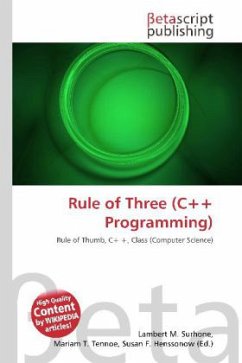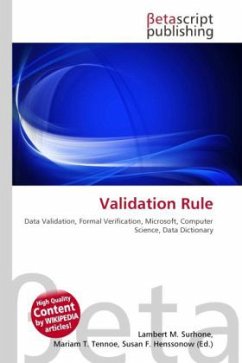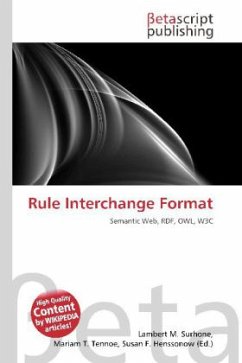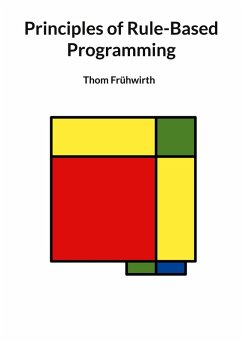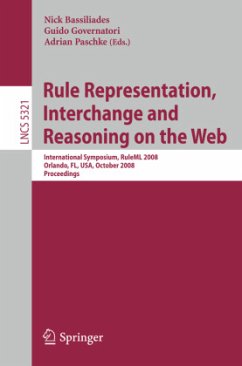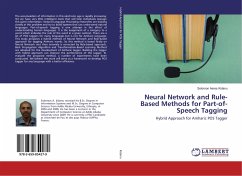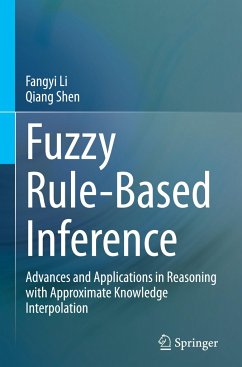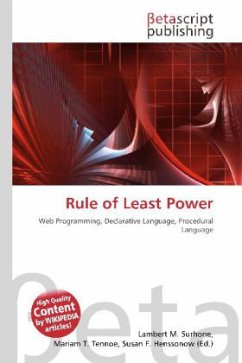
Rule of Least Power
Versandkostenfrei!
Versandfertig in 6-10 Tagen
23,99 €
inkl. MwSt.

PAYBACK Punkte
12 °P sammeln!
Please note that the content of this book primarily consists of articles available from Wikipedia or other free sources online. In web programming, the rule of least power is a design principle which "suggests choosing the least powerful language suitable for a given purpose". Stated alternatively, given a choice among computer languages, classes of which range from descriptive (or declarative) to procedural, the less procedural, more descriptive the language one chooses, the more one can do with the data stored in that language. Originally proposed as an axiom of good design, the term is an e...
Please note that the content of this book primarily consists of articles available from Wikipedia or other free sources online. In web programming, the rule of least power is a design principle which "suggests choosing the least powerful language suitable for a given purpose". Stated alternatively, given a choice among computer languages, classes of which range from descriptive (or declarative) to procedural, the less procedural, more descriptive the language one chooses, the more one can do with the data stored in that language. Originally proposed as an axiom of good design, the term is an extension of the KISS principle applied to choosing among a range of languages starting with the plainly descriptive (such as the content of most databases, or HTML) though logical languages of limited propositional logic (such as access control lists), though declarative languages on the verge of being Turing-complete (PDF), through those which are in fact Turing-complete though one is led not to use them that way (XSLT, SQL) to those which are completely procedural (general-purpose programming languages).



